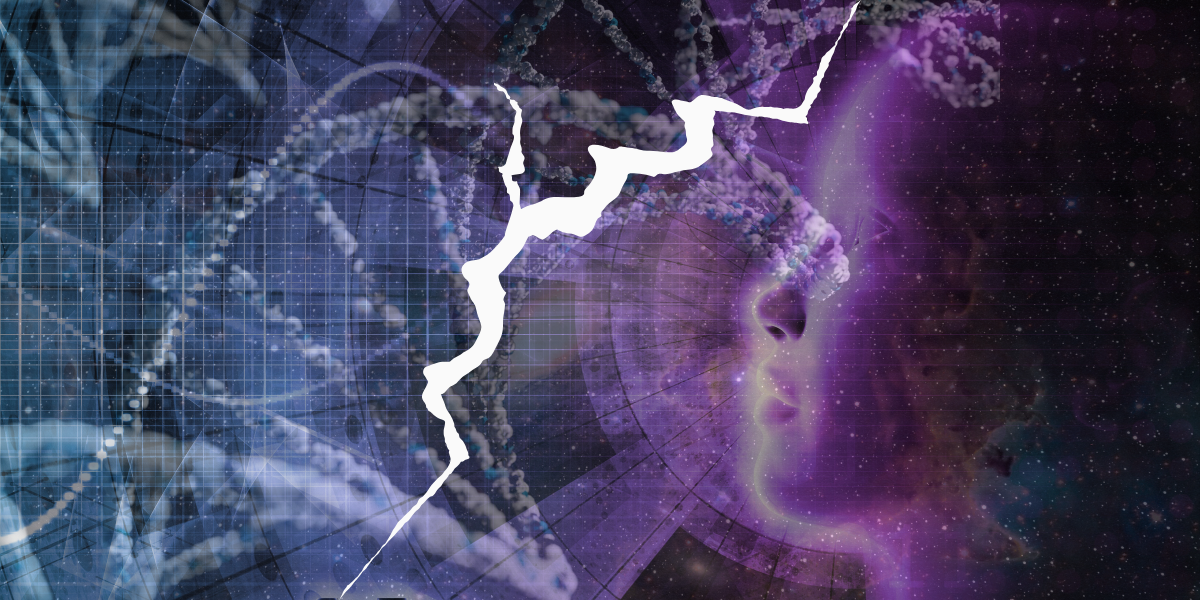There’s an elephant in the room—science’s faith in measurability.
It’s a quiet doctrine, rarely named aloud, but fiercely defended in practice. If it can’t be measured, modeled, or tested, it’s labeled subjective. Or worse—unscientific.
And that belief, more than any unanswered question, is what’s holding the scientific community back.
Even the most brilliant minds have felt this tension.
Einstein famously rejected the uncertainty at the heart of quantum entanglement and the observer effect, saying, “God does not play dice with the universe.” He believed reality must be governed by deeper laws—ones we simply hadn’t grasped yet. And he wasn’t alone. Physicists, philosophers, and even mathematicians have long wrestled with the realization that nature itself may not be fully measurable.
That consciousness, emotion, and morality—though undeniably real—remain just outside science’s current reach.
So what do we do with that? Do we deny their importance because we can’t pin them down with numbers? Or do we admit what we already know in our bones: That some truths don’t disappear just because they don’t fit on a spreadsheet.
Maybe the scientific method isn’t failing us—
Maybe we’ve simply reached the edge of what it can do.
…And maybe it’s time to graduate from it.
The “Human Construct” Paradox
Science loves to qualify anything unmeasurable as a “human construct”. Morality, emotions, memories, intuition, dreams… it qualifies them as soft, abstract, even untrustworthy.
But, what is a “human construct”?
Usually, it means something artificial—something devised, invented, designed.
But, I’ve never seen a scientific method out in the wild, grazing on the grass. Have you?
It didn’t appear in nature like a mountain or a star. We created it.
So, if we dismiss morality, meaning, emotions, and dreams as ‘just human constructs’—shouldn’t we be just as skeptical of science itself? Or are we ready to admit that human constructs are often necessary tools for observing the universe?
Are Human Constructs ‘Unnatural’?
Interestingly, to say that our unique patterns are “just a human construct” while pretending humans are separate from the rest of reality is to accidentally admit you think humans are somehow other.
And if we’re “other,” then what are we?
Souls? Spirits? Beings beyond biology?
That’s a metaphysical belief. A spiritual one. A theological one.
As logical beings who study the behavior of our universe, we must accept one or the other:
- Humans are part of the universe, and our logic, morality, and meaning are part of its structure, or
- Humans are not part of the universe, which means scientists are already acknowledging something metaphysical—even if they don’t say it out loud.
The truth is, we trust science despite it being a “human construct,” because it produces consistent, replicable results.
But morality also produces consistent social patterns.
Emotions also have measurable biological effects.
Consciousness also generates structure, stories, and survival.
So if usefulness and consistency are the metrics of truth, why not apply the same respect to other “human constructs” that shape our reality?
We can’t keep calling things like meaning, morality, or love “less real” just because they’re born from within.
If we’re part of the universe, then everything we create is a reflection of it.
Even our myths.
Even our logic.
Even our longing to understand.
To dismiss the human interior as unscientific is to pretend we’re somehow separate from nature.
And that belief—that humans are other—may be the most unscientific assumption of all.
What Could this Mean for ‘The Theory of Everything’?
The scientific method, so far, has failed at realizing Einstein’s most ambitious endeavor—to develop a theory of everything. But what if that’s because it wasn’t designed to do so?
This method can only study what is observable and measurable.
What if reaching a truly satisfying conclusion requires something that makes many physicists deeply uncomfortable—combining science with philosophy, sociology, psychology, metaphysics, neurology… and even theology?
If the study of everything can’t be achieved with physics alone, maybe it’s because physics can’t account for all observed reality.
Our world is so much more layered than physics likes to admit. Consciousness, morality, emotions… they’re all part of something greater that we haven’t dug deep into with the help of world’s most brilliant minds.
But isn’t it incredibly unscientific to ignore the universe’s behaviors?
If we are all participants in this universe, and not just observers, then our consciousness should be studied by those who work to understand the universe. Our behaviors, however “human” they are, are not unnatural.
They are realistic—possibly the most objective and complex way of studying the universe. Consciousness is our primary tool for studying the universe—and yet, it remains one of the most misunderstood phenomena in existence.
If our observation is linked to the universe’s behavior, we aren’t even close to understanding the universe.
So, is science a human construct? How does this change our perception of reality?
There’s a possibility that we’ve been asking the right questions using the wrong constraints.
Maybe the problem isn’t that abstract “human constructs” like morality, emotion, and consciousness are “unscientific.”
Maybe it’s that our current definition of science is too narrow to include them.
The tools we’ve created—the equations, the methods, the models—study physical matter.
But reality isn’t just matter.
It’s motion.
It’s memory.
It’s meaning.
It’s mind.
And yet, the moment we acknowledge that—consciousness, intention, inner experience— we’ve left the realm of science.
But maybe we haven’t.
Maybe we’ve finally arrived at the frontier science was always meant to reach. The question isn’t, “Can we measure it?” The question is, “Can we understand it?”
And that requires us to let go of measurability as the sole condition for truth.
We need a framework that doesn’t fear complexity, isn’t threatened by logic existing beyond visibility, and treats human experience not as a philosophical accident—but as an emergent window into the universe itself.
A theory of everything that ignores consciousness… can’t ever be complete.
Because if observation changes the universe—
and we are the observers—
Then understanding the universe…
requires understanding us.


Leave a Reply